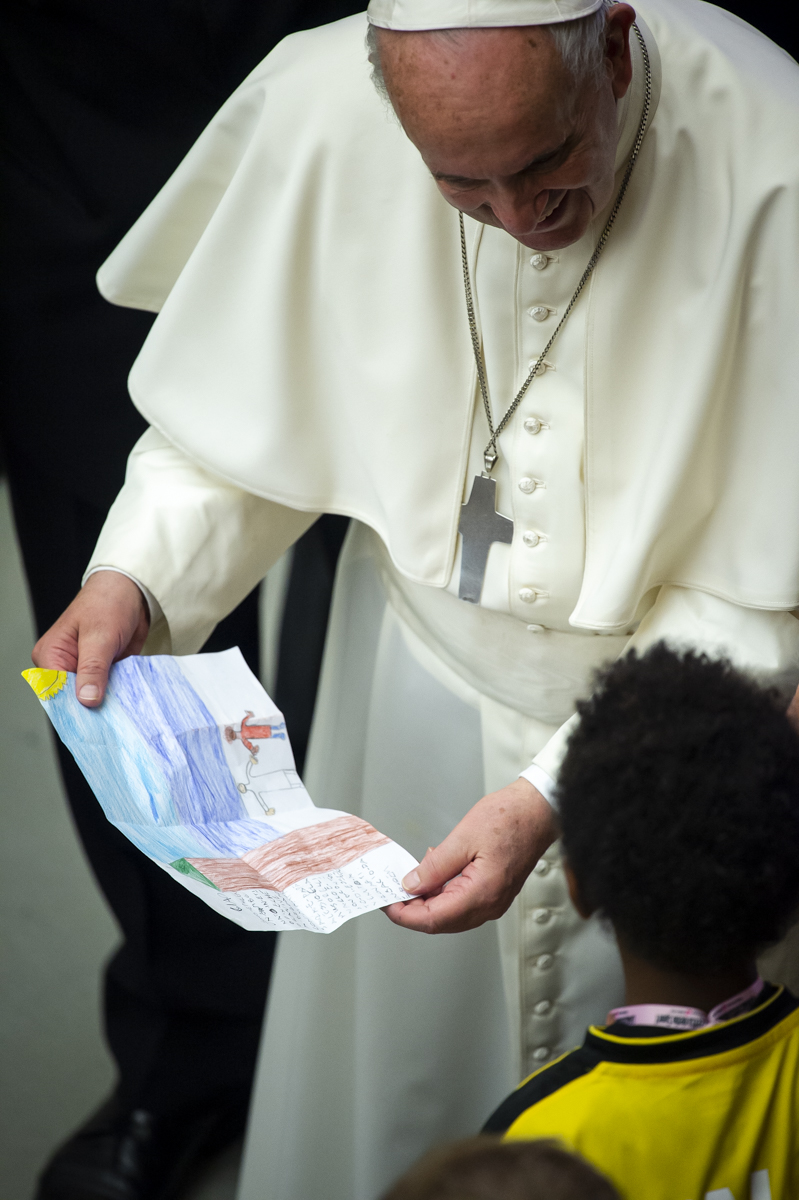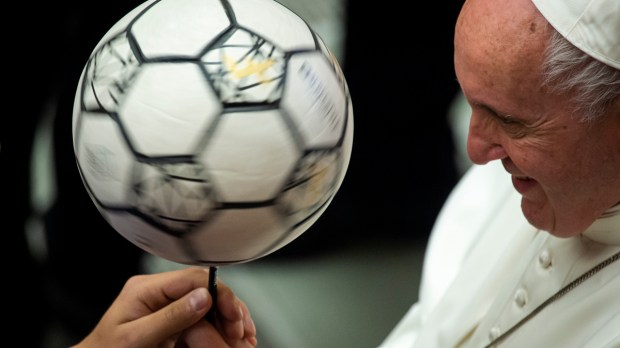Pope Francis says playing sports is a great way to offset the isolation that is so characteristic of our social media-obsessed world.
This week, he addressed some 6,000 kids from Italy, who had an audience with him sponsored by various Italian sports and education organizations.
“Sport is a great opportunity to learn to give the best of yourself, with sacrifice and commitment, but above all, not alone,” observed the Holy Father. “Listen carefully: sport — not alone.”
“We live in a time when, thanks to the massive presence of new technologies, it is easy to isolate oneself, to create virtual bonds with many people, but at a distance. Links, but alone,” he said. “The great thing about playing with a ball is being able to do it together with others, passing it in the middle of a field, learning to build the action of a game, joining together as a team … The ball becomes a means of inviting real people to share friendship, to find oneself in a space, to look at yourself, to challenge yourself to put your skills to the test.”
Dear friends, football is a team game: you can’t enjoy it alone! And if it is lived like this, it can truly do good also to the mind and the heart in a society that emphasizes the subjectivism, the centrality of the own self, almost as if it were an absolute principle. … Playing makes you happy because you can express your freedom, compete in a fun way, spend free time simply … why? why? … Because you like it, you like to play football, you run after a dream but without necessarily becoming a champion. The Charter of Children’s Rights to Sport also reaffirms the right of every child “to practice a sport as a game for fun only” (Article 10).

Read more:
Why team sports are one of the best ways to fight the mean girl culture
Francis went on to invite parents to transmit to their children that mentality of the game, “to encourage them in difficult times, especially after a defeat … And to help them understand that being on the bench is not a humiliation, but an opportunity to grow and an opportunity for another person. So that they may always have the pleasure of doing their best, because beyond the game there is the life that awaits them.”
In this adventure, coaches have an important role, because they represent a point of reference for children who train. “Everything you say and do, and the way in which you say and do it, is a lesson for your athletes, and as such will leave an indelible mark on their life, for better or for worse,” the pope warned.
He also addressed the football champions who inspire these young athletes. “Do not forget where you started from: in that field on the outskirts of town, in that oratory, in that small club … I hope you will always feel gratitude for your history made up of sacrifices, victories and defeats. And may you also be aware of your educational responsibility, shown through consistency in life and solidarity with the weakest, encouraging the youngest to become great inside and maybe even champions in life.”
He reserved his final words for the managers, whom he exhorted always to defend the amateur spirit of the game. “May the beauty of football not be lost in the do ut des offinancial affairs.”


